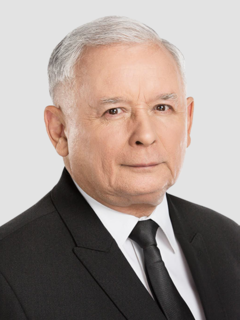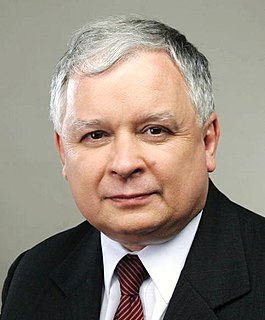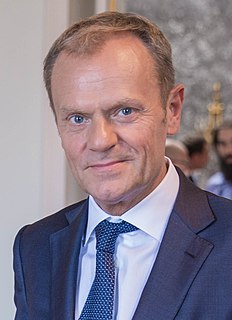A Quote by Jaroslaw Kaczynski
Brexit was not a historical accident, after all. It taught us where the EU's real problems lie. And if we do not solve them, we will not prevent the anti-European currents in many EU countries, but rather encourage them.
Related Quotes
It is positive that the United States and the European Union show a great deal of unity. Putin did not expect that. He thought he could split the EU, but the opposite happened: The EU imposed sanctions and even scaled them up. Of course we need more financial and military aid, the supply of lethal weapons is of crucial importance to us.
I should also say that apart from the negotiations that are taking place within the WTO, we are ourselves involved in all manner of bilateral negotiations, or, if they are not bilateral, with the South African Customs Union and the European Union. All the member countries of the European Union have now ratified the agreement that we have with the EU and that opens up the EU market in various ways.
unlike other countries, we're not skeptical at all when it comes to EU expansion. In fact, we are in favor of admitting Ukraine and Turkey. In this sense, one can hardly say that we are focusing unilaterally on our own national interests. Austria, for example, has held up the negotiations for Turkey's admission to the EU. Why am I against deeper involvement in the EU? There are several reasons for that.
Is it in the interests of Britain to leave or remain in the EU? As we saw in the referendum, there are different Britains and they see their interests in different ways. For a lot of everyday blokes the EU affected their sense of identity in ways they disliked, and they were right in thinking that the EU didn't return much to them by way of economic benefits.
If we believe that the EU is only a fair-weather event we will be doomed. The EU cannot be an answer only to the tragedies of the past but also to the problems of the future. We must understand that the geopolitical holidays are over. It's time to go back to school where there will be only hard exams to take.

































